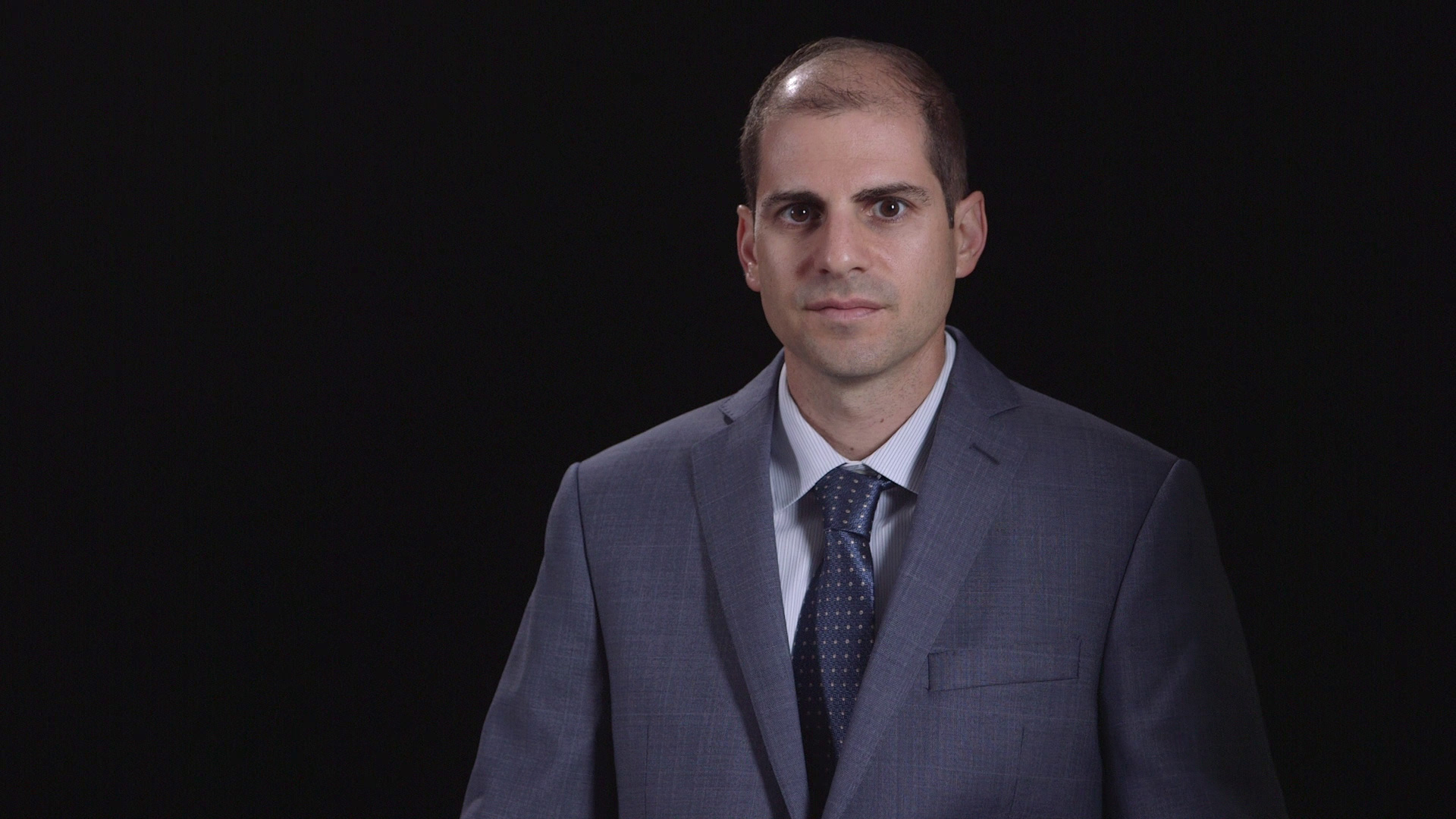Testosterone hormone therapy comes in three different forms; intramuscular injection, patch, or gel form. The injection is usually administered once a week, the patch and gel are both placed on the skin as directed by the doctor [Read Full Article…]
The Prostate Cancer Test That Saved My Life
“Yeah,” he said, in a slightly nonplussed way, gazing at the results, “I was surprised myself.”
As my new, world-altering doctor spoke about cell cores and Gleason scores, probabilities of survival, incontinence and impotence, why surgery would be good and what kind would make the most sense, his voice literally faded out like every movie or TV show about a guy being told he had cancer… a classic Walter White moment, except I was me, and no one was filming anything at all.
 I got diagnosed with prostate cancer Friday, June 13th, 2014. On September 17th of that year I got a test back telling me I was cancer free. The three months in between were a crazy roller coaster ride with which about 180,000 men a year in America can identify.
I got diagnosed with prostate cancer Friday, June 13th, 2014. On September 17th of that year I got a test back telling me I was cancer free. The three months in between were a crazy roller coaster ride with which about 180,000 men a year in America can identify.
Right after I got the news, still trying to process the key words echoing dimly in my head (probability of survival–vival-vival-val…” “incontinence-nence-nence-ence …), I promptly got on my computer and Googled “Men who had prostate cancer.” I had no idea what to do and needed to see some proof this was not the end of the world.
John Kerry… Joe Torre… excellent, both still going strong. Mandy Patinkin… Robert DeNiro. They’re vital. OK great. Feeling relatively optimistic, I then of course had to do one more search, going dark and quickly tapping in “died of” in place of “had” in the search window.
As I learned more about my disease (one of the key learnings is not to Google “people who died of prostate cancer” immediately after being diagnosed with prostate cancer), I was able to wrap my head around the fact that I was incredibly fortunate. Fortunate because my cancer was detected early enough to treat. And also because my internist gave me a test he didn’t have to.
Taking the PSA test saved my life. Literally. That’s why I am writing this now. There has been a lot of controversy over the test in the last few years. Articles and op-eds on whether it is safe, studies that seem to be interpreted in many different ways, and debates about whether men should take it all. I am not offering a scientific point of view here, just a personal one, based on my experience. The bottom line for me: I was lucky enough to have a doctor who gave me what they call a “baseline” PSA test when I was about 46. I have no history of prostate cancer in my family and I am not in the high-risk group, being neither — to the best of my knowledge — of African or Scandinavian ancestry. I had no symptoms.
What I had — and I’m healthy today because of it — was a thoughtful internist who felt like I was around the age to start checking my PSA level, and discussed it with me.
If he had waited, as the American Cancer Society recommends, until I was 50, I would not have known I had a growing tumor until two years after I got treated. If he had followed the US Preventive Services Task Force guidelines, I would have never gotten tested at all, and not have known I had cancer until it was way too late to treat successfully.
Now, in my case, my doctor, Bernard Kruger, watched my PSA tests rise for over a year and a half, testing me every six months. As the numbers continued to rise, he sent me to the urologist, who gave me a slightly invasive physical check in his office using a gloved finger. This took all of 10 seconds. While I don’t recommend it for fun, amazingly some don’t recommend it at all. After this exam, and looking at my rising PSA numbers, he suggested an MRI to get a roadmap of my prostate.
It’s a non-invasive procedure like the one athletes get to check for torn ACLs. Loud, but painless. Only after studying the MRI results did my doctor recommend a not-fun-at-all biopsy. Unlike the MRI, the biopsy was as invasive as it gets: long needles in sensitive places and more small talk about kids and school pick ups while it was all going down.
Then the biopsy came back positive. Of course “positive” for medical tests is usually not so positive. I had a Gleason score of 7 (3+4), which is categorized “mid-range aggressive cancer.” Surgery was recommended. At this point I decided to go out and get a few different opinions. All the doctors I talked to concurred that the tumor needed to be taken out.
Ultimately, I found a wonderful surgeon named Edward Schaeffer who I felt comfortable with. He performed a robotic assisted laparoscopic radical prostatectomy. Due to a lot of skill and a little beneficence from some higher power, he got all the cancer. As of this writing I am two years cancer free and extremely grateful.
So. What is the deal with this PSA test and why the controversy?
It is a simple, painless blood test. It is not dangerous in itself in any way. If the PSA (Prostate Specific Antigen) value is elevated in the blood, or levels rise sharply over time, it could indicate the presence of prostate cancer. It is definitely not foolproof.
The criticism of the test is that depending on how they interpret the data, doctors can send patients for further tests like the MRI and the more invasive biopsy, when not needed. Physicians can find low-risk cancers that are not life threatening, especially to older patients. In some cases, men with this type of cancer get “over-treatment” like radiation or surgery, resulting in side effects such as impotence or incontinence. Obviously this is not good; however it’s all in the purview of the doctor treating the patient.
But without this PSA test itself, or any screening procedure at all, how are doctors going to detect asymptomatic cases like mine, before the cancer has spread and metastasized throughout one’s body rendering it incurable? Or what about the men who are most at risk, those of African ancestry, and men who have a history of prostate cancer in their family? Should we, as the USPSTF suggests, not screen them at all? There is growing evidence that these guidelines have led to increased cases of prostate cancers that get detected too late for the patient to survive the disease.
Five years after their initial recommendation to stop PSA testing, the USPSTF is presently, per their website, “updating their recommendations.” I think men over the age of 40 should have the opportunity to discuss the test with their doctor and learn about it, so they can have the chance to be screened. After that an informed patient can make responsible choices as to how to proceed.
I count my blessings that I had a doctor who presented me with these options. After I chose to take the test, he directed me to doctors who worked at centers of excellence in this field to determine the next steps. This is a complicated issue, and an evolving one. But in this imperfect world, I believe the best way to determine a course of action for the most treatable, yet deadly cancer, is to detect it early.
Urology Experts at St Petersburg FL
Male Urology is the medical and surgical field that is especially devoted to the treatment on the urinary tracts of males and on his reproductive health [Read Full Article…]
Erectile Dysnfunction Treatment Options with Dr Reid Graves
Erectile dysfunction (ED, impotence) varies in severity; some men have a total inability to achieve an erection, others have an inconsistent ability to achieve an erection, and still others can sustain only brief erections.[Read Full Article…]
Minimally Invasive Surgery with Dr Laryngakis
The da Vinci Surgical System is a surgical robot that does tiny incisions for precise, minimally invasive procedures. [Read Full Article…]
Inflatable Penile Prosthesis – Reid Graves
Inflatable Penile Prosthesis is a device implanted into the penis to achieve an erection-like state that enables a man to have sexual intercourse [Read Full Article…]
Penile Prosthesis Success Rate, Dr Reid Graves
Penile Implant requires a permanent surgical procedure that cannot be reversed. It is important that men talk to their doctor about the advantages and possible risks of having the procedure.[Read Full Article…]
Dr Nicholas Laryngakis – Becoming a Urologist
Dr. Nicholas Laryngakis is a board certified urologist practicing in St. Petersburg and the greater Tampa Bay area. He received his undergraduate and medical school degree from the University of Florida. [Read Full Article…]
Dr Reid Graves – Why Choose St Pete Urology
Dr Graves says that the St Pete Urology team of doctors and staff provide compassionate care to patients who often require difficult treatments in sensitive parts of their bodies. In most cases, patients are searching for answers to their medical questions, so the physicians strive to provide them with evidence-based solutions and treat them using the most advanced procedures. [Read Full Article…]
St Pete Urology Patient Care Options
St Pete Urology have successfully treated thousands of patients in the Tampa Bay Area with a focus on achieving the best possible results using the most advanced equipment and procedures. [Read Full Article…]








